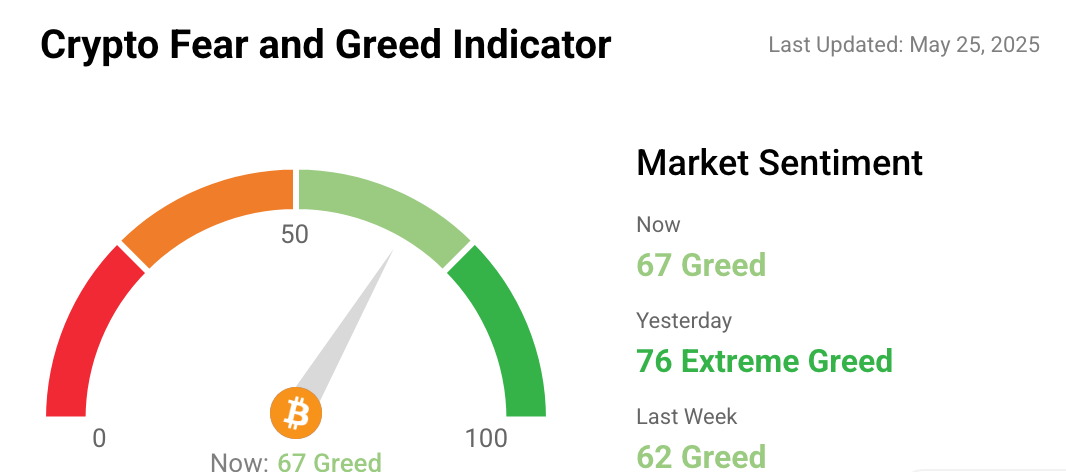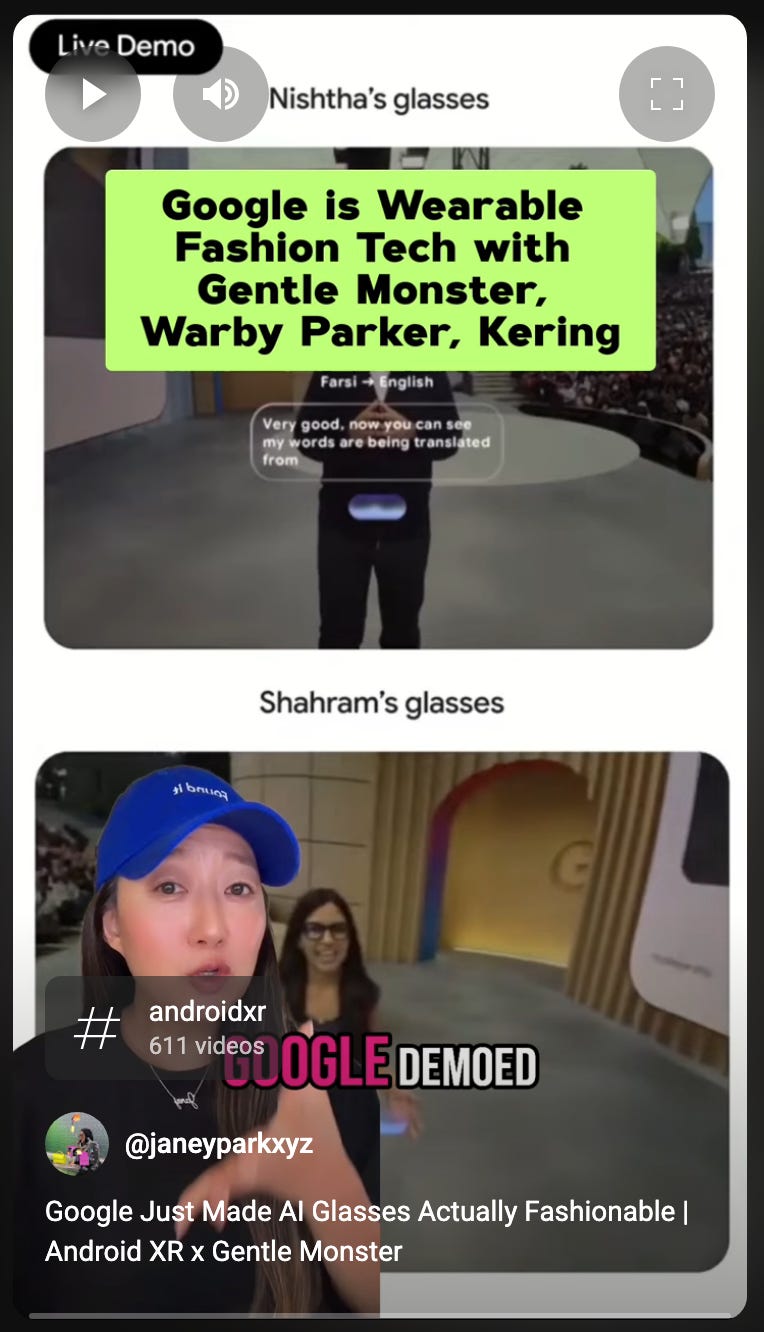Weekly Journal: An Interview With Kay Firth-Butterfield You Can't Miss.
[6 min read] Your weekend guide to getting ahead on the digital frontier. Kay, the former Head of AI at the WEF offers a nuanced and compelling perspective on where Gen AI & The Metaverse are headed
Welcome to this week’s Weekly Journal 📔, your guide to the latest news & innovation in emerging technology, digital assets, and our exciting path to the Metaverse. This is week 129 of the 520 weeks of newsletters I have committed to, a decade of documenting our physical and digital lives converge. New subscribers are encouraged to check out the history & purpose of this newsletter as well as the archive.
- Ryan
🌐 Digital Assets Market Update
To me, the Metaverse is the convergence of physical & virtual lives. As we work, play and socialise in virtual worlds, we need virtual currencies & assets. These have now reached mainstream finance as a defined asset class:
🔥🗺️Heat map shows the 7 day change in price (red down, green up) and block size is market cap. Bitcoin holding over USD$100k
🎭 Crypto Fear and Greed Index is an insight into the underlying psychological forces that drives the market’s volatility. Sentiment reveals itself across various channels—from social media activity to Google search trends—and when analysed alongside market data, these signals provide meaningful insight into the prevailing investment climate. The Fear & Greed Index aggregates these inputs, assigning weighted value to each, and distils them into a single, unified score.
🗞️ Metaverse news from this week:
African Telecommunications Union Signs Landmark Metaverse Governance Deal to Shape Africa’s Virtual Future
In a strategic move to accelerate Africa’s digital transformation, the African Telecommunications Union (ATU) has signed a Memorandum of Understanding (MoU) with The Metaverse Institute to jointly develop a governance framework for the metaverse across the continent. The partnership, formalised at ATU’s Nairobi headquarters, aims to craft Africa’s roadmap for immersive technologies—including virtual reality, artificial intelligence, smart cities, and digital twins—paving the way for a new era of economic and social innovation.
ATU Secretary-General John Omo hailed the agreement as “a historic step in our digital journey that positions Africa to lead in the next generation of internet platforms.” The deal includes plans to:
Develop pan-African policy and technical standards for metaverse applications
Launch training programmes in blockchain, VR, and immersive tech
Establish a joint oversight body to manage pilot initiatives across all 52 ATU Member States
The metaverse is seen as a powerful tool to address Africa’s most pressing challenges, from risk-free humanoid robot training and medical simulation, to climate modelling, virtual agriculture, and education access. With Africa’s youth expected to make up nearly half the global under-25 population by 2100, digital skills and equitable access to immersive technologies are becoming critical. Dr. Christina Yan Zhang, CEO of The Metaverse Institute, emphasised the continent’s opportunity to leapfrog legacy infrastructure and emerge as a global digital leader by 2063. “This is about building a digitally empowered Africa where innovation serves humanity,” she said.
With 5G networks now active in 16 African markets and mobile technology contributing over $170 billion to the continent’s GDP, the MoU represents a bold effort to ensure Africa not only joins but helps govern the metaverse revolution. Work begins immediately with joint working groups set to draft the governance framework and launch skill-building initiatives in the coming months.
Study: The Metaverse Is Redefining Consumer Engagement Through Emotional Connection
A new study from the University of Surrey reveals that the metaverse is not just transforming how consumers interact with brands—it’s fundamentally changing the emotional fabric of engagement. Published in the Journal of Research in Interactive Marketing, the study explores the rise of digital doppelgängers—high-fidelity, 3D avatars powered by AR and VR—that allow users to navigate metaverse platforms like Roblox and ZEPETO with a heightened sense of identity and embodiment.
Unlike static avatars, digital doppelgängers evoke deep emotional responses such as enjoyment, relaxation, and enhanced reputation. These emotional states, the researchers found, are critical drivers of consumer brand engagement in immersive digital worlds.
Dr. Jashim Khan, the study’s lead author, noted, “When consumers engage with brands through their digital doppelgängers, they don’t just see a screen—they feel the experience. This sense of embodiment strengthens emotional ties and transforms how loyalty and identity are built.”
Key findings include:
Emotional connection is central to brand success in the metaverse.
Consumers value experiences that offer enjoyment and relaxation, not just functionality.
Reputation-building within digital communities influences brand perception.
The study urges brands to invest in immersive technologies that allow users to explore and express their digital identities. This includes building interactive, emotionally resonant environments rather than just replicating existing websites or stores in 3D. As the metaverse becomes a core channel for consumer engagement, brands that can tap into the psychology of presence, emotion, and identity will have a competitive edge in building lasting relationships in virtual worlds.
👓 Read of the Week: Kay Firth-Butterfield on the Future of AI, the Metaverse, and Ethical Digital Transformation
Few thought leaders bridge AI governance, ethics, and frontier tech as well as Kay Firth-Butterfield. Former Head of AI at the World Economic Forum, Kay offered a nuanced and compelling perspective on where generative AI, the metaverse, and emerging tech are headed in a recent interview.
Key insights:
🧠 Generative AI: Democratising, yet Distorting
Generative AI enables anyone to query the world’s knowledge in natural language — a profound leveller for SMEs and individuals. But Kay warns of digital colonisation, as global models are mostly trained on U.S. and European data. She raises the risk that hallucinated or culturally biased outputs may quietly become embedded truths.
🌐 The Metaverse: From Hype to Practicality
After the early hype cycle, we’ve entered a "Metaverse Autumn." While full-scale 3D immersion remains aspirational, Kay sees strong near-term gains in retail and remote work. Virtual shops, “feelable” fabrics, and avatar-based mentoring are early practical use cases — with industrial and enterprise adoption quietly leading the charge.
⚖️ The Ethical Crossroads of AI and Digital Transformation
Kay emphasises that embracing AI should be strategic, not reactionary. She warns against implementing tech for tech’s sake, and urges firms to ask hard questions about how AI tools are sourced, governed, and aligned with business objectives.
📉 Job Displacement vs. Value Creation
The looming threat of AI-driven unemployment is real — but not inevitable. As AI begins coding, creating content, and analysing data faster than humans, society must redefine the value of human work. Education, policy, and ethics must evolve alongside the tech.
🚀 What’s Next: NLP, Quantum, IoT, and Synthetic Biology
Kay points to Natural Language Processing as the near-term inflection point, where AI will replace code with conversation. On the horizon: quantum-enhanced AI, AI-assisted biotech, and a proliferation of connected devices — each promising transformation and risk in equal measure.
🎥 Watch of the week:
Something nice and light this week I found interesting:
AI Showcase🎨🤖🎵✍🏼: Meet Claude 4 – Anthropic’s Most Powerful AI Yet
In the Metaverse, AI will be critical for creating intelligent virtual environments and avatars that can understand and respond to users with human-like cognition and natural interactions.
This week’s AI spotlight shines on Claude 4, the newest and most advanced AI model from Anthropic. If you’re new to artificial intelligence, think of Claude like a super-smart assistant that can help you write, code, solve problems, and even think through complex tasks – all through conversation.
Anthropic has released two new versions: Claude Opus 4 and Claude Sonnet 4. Opus 4 is their most powerful AI ever – it can work for hours on detailed projects, understand tricky instructions, and perform like an expert in things like writing, maths, and coding. Sonnet 4 is a bit faster and more affordable, but still much smarter than earlier models, making it perfect for everyday use.
A cool new feature in both versions is called “extended thinking” – it means Claude can switch between quick replies (like a chatbot) and deeper thinking when needed. This helps it be more accurate, thoughtful, and helpful, especially when the question or task is more complex. It can even use tools like web search during this mode to find the most relevant info.
Whether you're a curious beginner or just starting to explore AI, Claude 4 is part of a growing wave of assistants that are designed not just to chat, but to actually help you get things done. Think of it as the next step in making AI more like a reliable teammate.
That’s all for this week! If you have any organisations in mind that could benefit from keynotes about emerging technology, be sure to reach out. Public speaking is one of many services I offer.




